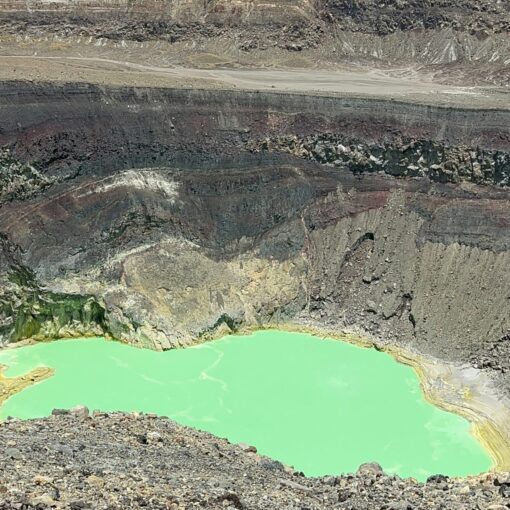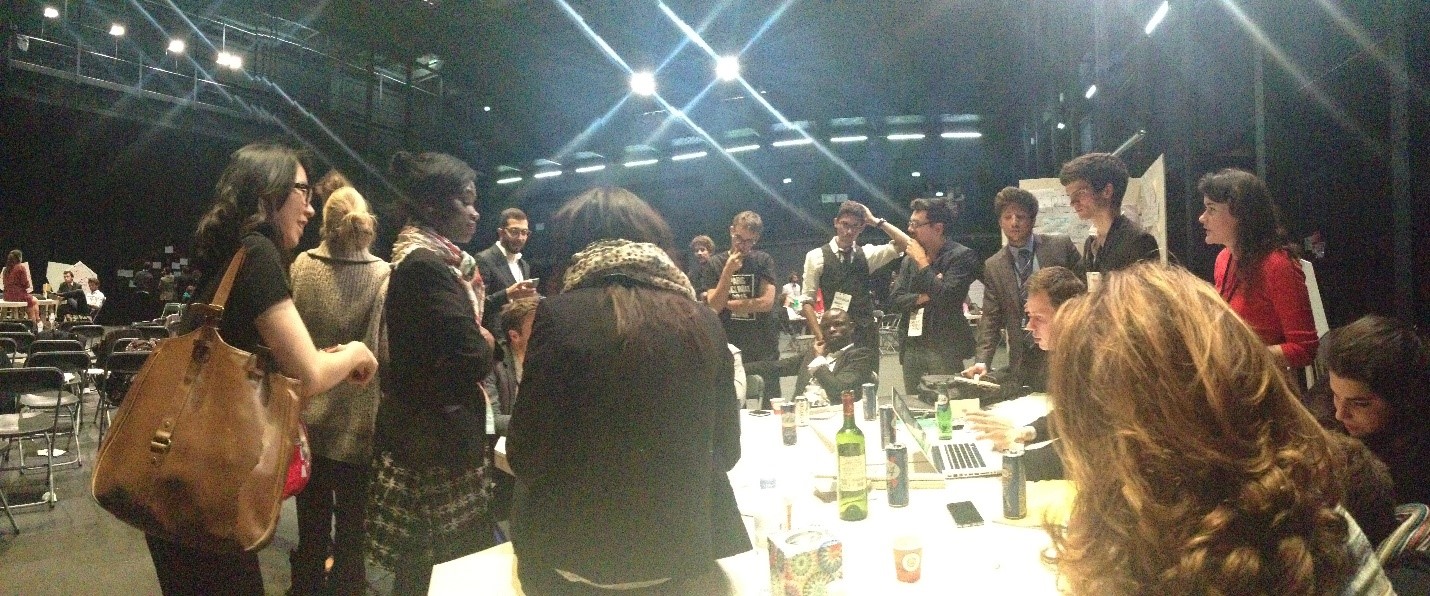By Richmund Sta. Lucia
The world is currently looking with great interest at how the groundbreaking case known as the “Carbon Majors” petition will unfold. On September 22, 2015, Greenpeace Southeast Asia, Philippine Rural Reconstruction Movement, and numerous other interest groups filed a petition with the Philippine Commission on Human Rights (CHR) against 50 multinational corporations identified as the “Carbon Majors”. Based on a study conducted by Mr. Richard Heede of the Climate Accountability Institute, the petition requests the CHR to investigate the responsibility of the Carbon Majors for contributing to global emissions of greenhouse gases (carbon dioxide and methane) that are tantamount to human rights violations. The Carbon Majors named in the petition are investor-owned companies engaged in the oil & gas, coal, and cement businesses, including Chevron, ExxonMobil, British Petroleum (BP), and Royal Dutch Shell. Notably, the Philippines has experienced a fair amount of the adverse effects of climate change, foremost of which is Typhoon Haiyan—one of the strongest tropical cyclones ever recorded in history—that devastated the country in 2013.
The petition caught the attention of academics and stakeholders in climate justice around the globe. On December 16, 2016, the Sabin Center on Climate Change Law submitted to the CHR its position in support of the petition. In another blog post, the Sabin Center also shed light on the nature of the petition and how it can impact climate litigation.
One of the salient issues raised in the petition concerns the jurisdiction of the CHR. The petitioners assert that the CHR has jurisdiction over the petition based on the argument that responsibility for directly contributing to climate change is a violation of human rights of the Filipino people. In turn, the respondents (or at least those who have submitted letter-responses to the CHR) counter that it does not have jurisdiction, typically on the grounds that it does not have adjudicatory powers or they are not doing business in the Philippines. (For example, see responses of Anglo American, BHP Billiton, and Rio Tinto on the Sabin Center’s Non-U.S. Climate Litigation Database). In December 2017, the CHR stated to the media that it is assuming jurisdiction to investigate the allegations in the petition by conducting hearings in the Philippines and abroad throughout 2018. It aims to release its resolution by the first quarter of 2019, which could be a landmark development in climate justice litigation.
This post attempts to contribute to a better understanding of the nature and powers of the CHR that can help inform the resolution of the petition.
From a historical viewpoint, the CHR can be considered as a response to the human rights abuses committed during the martial-law regime of Ferdinand Marcos. Its mandate and functions reflect the lessons learned from the country’s experience of state-sponsored violations of human rights under Marcos’ dictatorship, including basic rights to life, liberty, and property, the right to peaceful assembly and petition the government for redress of grievances, freedom of speech and of the press, and others. After the 1986 People Power Revolution led by the succeeding president, Corazon Aquino, the 1987 Constitutional Commission formally created the CHR under the title on social justice and human rights found in Article XIII of the 1987 Philippine Constitution. The office was created by enabling law on May 5, 1987 by virtue of Executive Order No. 163.
The CHR’s mandate primarily involves the conduct of investigations of human rights violations involving civil and political rights of “marginalized and vulnerable sectors of the society” in accordance with universal human rights standards. According to its website, the CHR is an independent National Human Rights Institution (NHRI) which complies with the Paris Principles, as defined by the Office of the United Nations High Commissioner for Human Rights (OHCHR). As an NHRI, the CHR seeks to uphold six fundamental characteristics consisting of independence, pluralism, broad mandate, transparency, accessibility, and operational efficiency.
The specific powers and functions of the CHR are enumerated under Section 18, Article XIII of the Philippine Constitution. Among others, these include the power to:
(1) Investigate, on its own (motu proprio) or on complaint by a party, all forms of human rights violations involving civil and political rights;
(2) Provide appropriate legal measures for the protection of human rights of persons within the Philippines, as well as Filipinos residing abroad, and provide for preventive measures and legal aid services;
(3) Recommend to the Philippine Congress effective measures to promote human rights and to provide for compensation to human rights victims;
(4) Monitor the Philippine Government’s compliance with international treaty obligations on human rights; and
(5) Request the assistance of any department, bureau, office, or agency in the performance of its functions.
As can be gleaned above, the CHR has fact-finding, investigative, and recommendatory powers. In particular, it can recommend legislative measures to promote human rights (including investigation by the Philippine Congress in aid of legislation) and likewise request any appropriate government office to assist in the performance of its human rights functions. It cannot, however, adjudicate and resolve cases like in judicial proceedings.
The jurisdiction of CHR has been challenged in some cases decided by Philippine courts. In Cariño v. CHR, the Philippine Supreme Court tackled the question on whether or not the CHR has adjudicatory powers over, or the power to try and decide, cases that involve human rights violations involving civil or political rights like a court of justice or a quasi-judicial agency. The high court declared that the CHR has no such power, and that “[t]he most that may be conceded to the Commission in the way of adjudicative power is that it may investigate, i.e., receive evidence and make findings of fact as regards claimed human rights violations involving civil and political rights.” In Export Processing Zone Authority v. CHR, the Supreme Court held that the CHR does not have jurisdiction to issue a restraining order or writ of injunction. Citing Cariño, it was held in this case that the CHR—not being a court of justice—is not legally authorized to compel herein respondents to cease and desist from continuing the acts complained of by way of an injunctive process. What the CHR can do instead to carry out its power to provide “preventive measures and legal aid services” is to seek an injunction from the courts on behalf of the victims of human rights violations.
The Philippine Supreme Court also had the occasion to rule on the nature of human rights cases sought to be covered within the ambit of the CHR’s mandate. In Simon v. CHR, the Court noted the deliberations of the 1987 Constitutional Commission which envisioned that the focus of CHR’s attention would be on “the more severe cases of human rights violations”, for example, the protection of rights of political detainees, treatment of prisoners and the prevention of tortures, fair and public trials, and cases of disappearances. The Court hastened to add, however, that such enumeration with respect to the CHR’s scope of jurisdiction is not exhaustive. Accordingly, Section 19, Article XIII of the Philippine Constitution provides that the Congress may provide for other cases of violations of human rights that the CHR can take cognizance of.
From the viewpoint of Philippine jurisprudence, the holding in the Simon case seems to limit the jurisdiction of the CHR to civil and political rights only. To determine legislative intent, the Philippine Supreme Court set forth the discussions of the Constitutional Commission which seem to suggest that the authority of the CHR must be concentrated only on civil and political rights; in fact, one delegate contrasts these to land, housing, and health rights. (Notwithstanding the apparent delineation of the CHR’s jurisdiction, such discussion by the Court in Simon appears to be more obiter dictum rather than a part of the dispositive holding.)
It bears noting that the CHR is not a constitutional commission under Philippine law. In Commission on Human Rights Employees Association (CHREA) v. CHR, the Philippine Supreme Court ruled that the CHR is not a constitutional commission similar to the Civil Service Commission, the Commission on Elections, and the Commission on Audit, which are granted fiscal autonomy by the Philippine Constitution. Consequently, the CHR—though a constitutional body—enjoy only limited fiscal autonomy. While CHREA provides a limitation on the powers of the CHR in general, it appears that such limitation relates solely to the fiscal and budgetary authority of CHR and not to its jurisdictional authority.
The scope of rights contemplated under the CHR’s jurisdiction should be approached more broadly. This position is consistent with the Omnibus Rules of Procedure of the CHR. Under Section 1, Rule 2 of the Omnibus Rules, the CHR has the duty to take cognizance of and investigate “all forms of human rights violations and abuses involving civil and political rights”. Furthermore, Section 2 (paragraph 2) of the same Rule provides that the CHR is tasked to investigate and monitor “all economic, social and cultural rights violations and abuses, as well as threats of violations thereof, especially with respect to the conditions of those who are marginalized, disadvantaged, and vulnerable” (italics supplied). An otherwise narrow interpretation of the jurisdiction of the CHR may significantly impair its ability to address the wide gamut of human rights violations that occur in the Philippines as well as those experienced by Filipinos beyond its territory. Yet, as observed by some sectors, it bears emphasis that the CHR must continue to focus on its mandated functions of oversight and accountability.
While it may be conceded that the CHR cannot award damages or carry out enforcement powers, it has the vital role of supporting human rights victims with reparations and put to task government authorities to implement their duties that promote respect for human rights. Section 17, Rule 3 of the Omnibus Rules (as regards disposition of complaints or human rights cases) requires that the dispositive portion of the CHR’s resolution include the corresponding recommendations, which can entail any or all of the following: (1) the filing of appropriate criminal, administrative, or civil actions before the proper forum, (2) the endorsement for appropriate legislative, judicial, administrative and policy measures, and (3) the grant of financial assistance. To buttress these functions, the CHR and the Philippine Department of Justice (i.e., the Philippine Government’s prosecutorial arm) entered into a Memorandum of Agreement in 2012 where both agencies endeavor to share information and coordinate regarding the investigation and prosecution of human rights violations.
Based on the CHR’s recent pronouncements, it appears that it is committed to proceed with the inquiry despite the likelihood that the respondent corporations will not participate. Consistent with its power to investigate cases even on a motu proprio basis (Section 1, Rule 4 of the Omnibus Rules), it takes the positive view that the petition can be framed not as an issue of jurisdiction but, instead, as “an issue of mandate to investigate”, which then animates the Philippine human rights institution to pursue an investigation and inform itself about the responsibility of carbon emitters. Going forward, it will be interesting to witness how the role of the CHR will play out and how developments on the petition will impact the future of climate justice.
Richmund Sta. Lucia, a candidate for an LL.M. degree at Columbia Law School, received his J.D. degree from the University of the Philippines College of Law and has worked as an attorney in the Philippines’ Office of the Solicitor General and private law firms. His legal advocacy includes the promotion of renewable energy.



